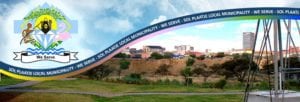Deputy Minister Nel commended the leadership of Sol Plaatje Municipality for turning the municipality around – in line with the Back to Basics approach.
He said the successful completion of the first phase of upgrading the municipality’s water supply system over the past weekend was but one example of these efforts. “However, the bottom third of dysfunctional municipalities face serious challenges and require urgent intervention and support to get the basics right. “These dysfunctional municipalities are characterised by corruption, dysfunctional councils, no structured community engagement and participation systems, as well as poor financial management leading to continuous negative audit outcomes,” he said. The analysis conducted by the joint national and provincial Back to Basics team indicated that of the 32 municipalities in the Northern Cape two are doing very well, 15 are doing okay, and 15 are dysfunctional. “This situation requires urgent and concerted action. It is in these municipalities that there is a need to intervene urgently to ensure that they put people first, deliver a basket of basic services, practice good governance, practice sound financial management, and build capable and resilient institutions,” he said.The Back to Basics initiative also means ensuring that municipalities have the basic capacity required to manage South Africa’s rapid urbanisation and to transform apartheid spatial patterns.
“We need a new deal for our cities and towns. The legacy of apartheid spatial patterns and the challenges of rapid urbanization must be confronted through integrated urban development that is linked to the development of our rural areas. “In doing so we must recognize the inextricable link between rural and urban development. “We must de-racialise communities so that a new and more cohesive society can be built. All residents, black and white, must equally enjoy the benefits of development,” he said. He said it was for this reason that government has developed an Integrated Urban Development Framework in line with the vision of the National Development Plan







